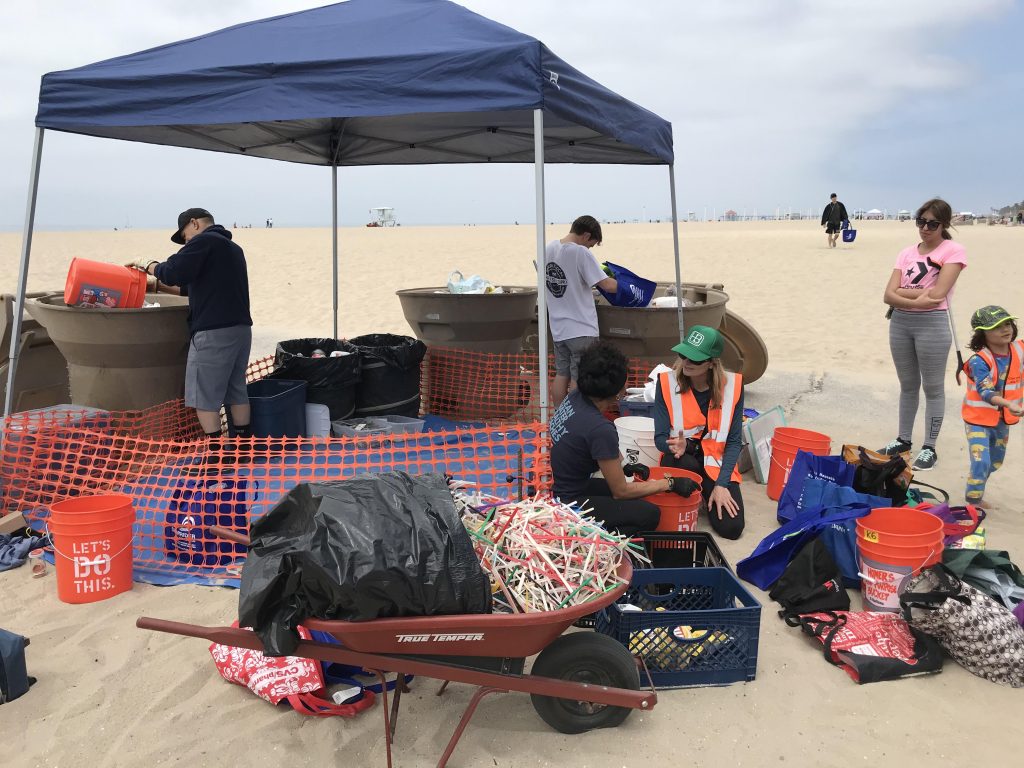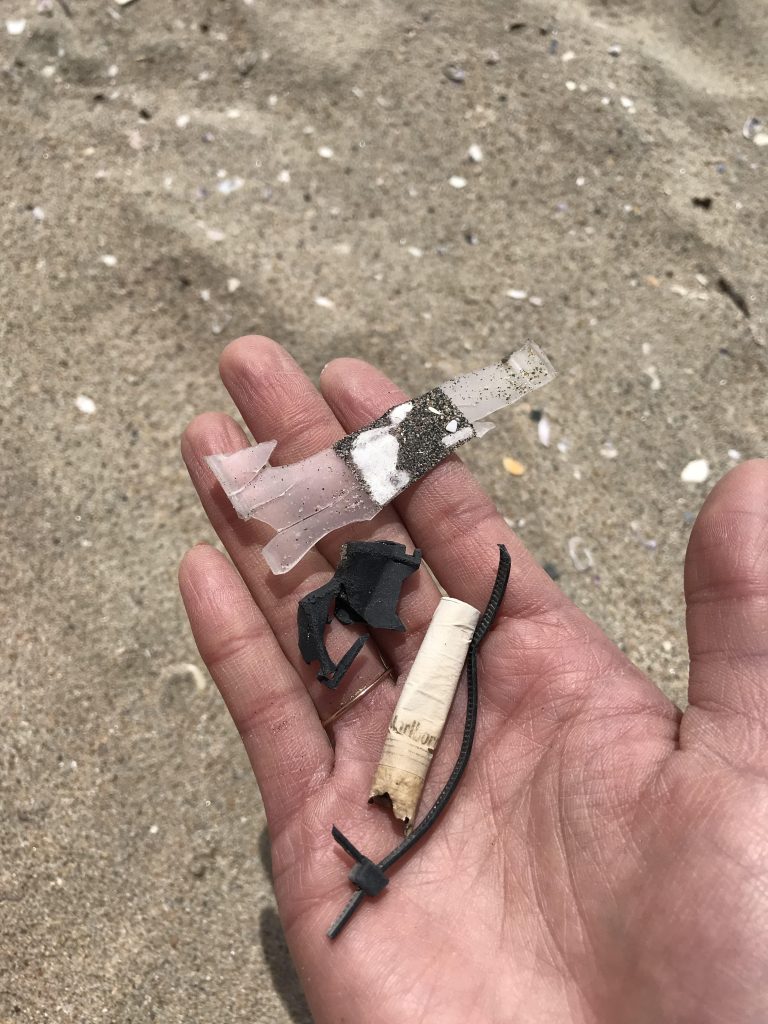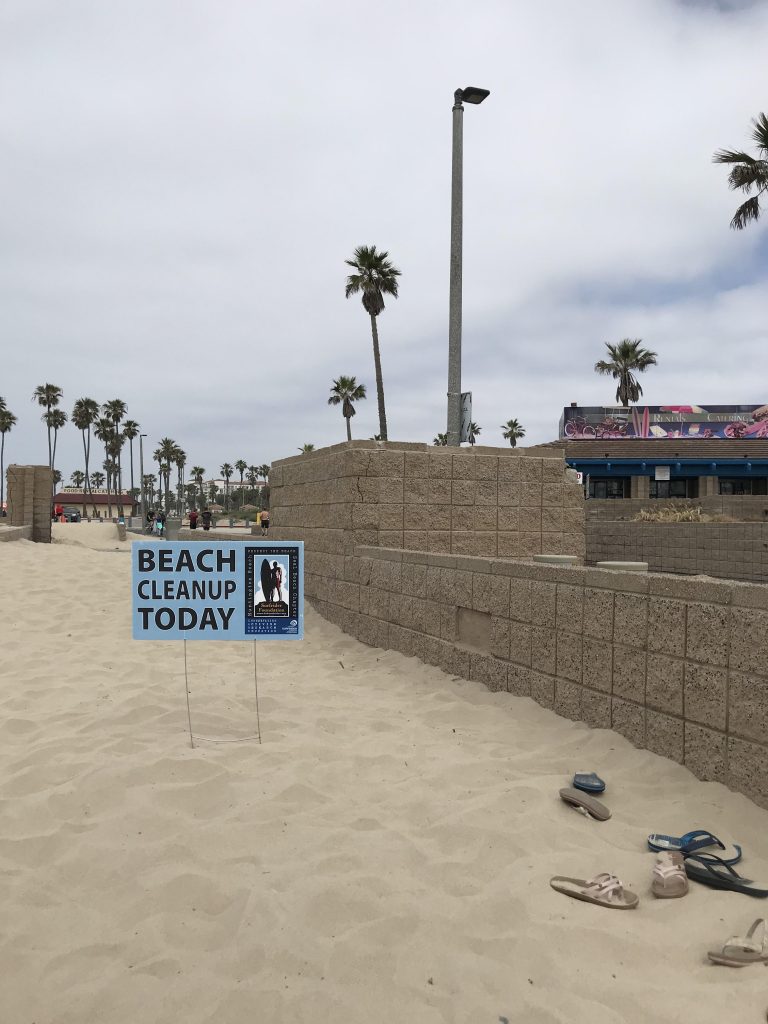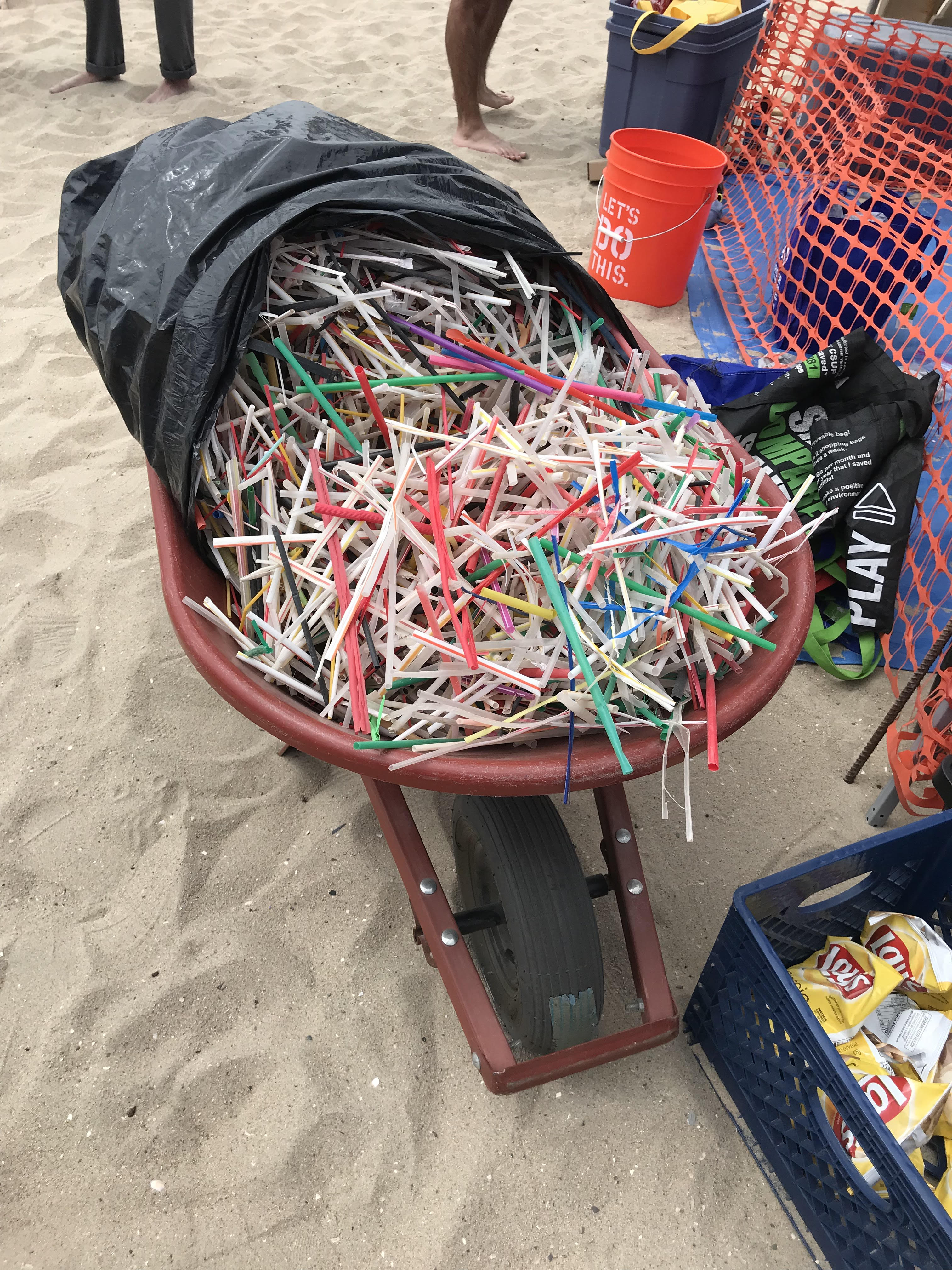By 2050, there could be more plastic swimming in the world’s oceans than fish in weight. This prediction was made by various renowned sources such as The United Nations and Ellen MacArthur Foundation. Society is well aware of the first step to the solution in solving this ecocatastrophe: Pick up your trash and dispose of it in the correct color bin. Getting everyone to care enough to take action-based steps and turn them into daily eco friendly habits is where the difficulty lies. Cue Surfrider Foundation (SF), a non-profit organization of coastal defenders with over 80 chapters worldwide.
In particular, the mission of their Huntington/Seal Beach (H/SB) chapter is to fight apathy by cultivating community-based awareness through digestible education targeted at the youth, and reducing (and eventually eliminating) plastic pollution in the ocean with their diverse range of programs.

At every beach cleanup hosted by SF H/SB chapter, expect several blue canopies set up with registration tables displaying various educational tools on how to take care of our planet—colorful reusable water bottles, samples of water testing, several wide-mouth plastic jars filled with cigarette buds and young eager volunteers greeting fellow volunteers with a warm welcome and a reusable bag for the beach cleanup. Adjacent to the registration tables, sits another blue canopy known as their “pit.”
The pit, spearheaded by Stephanie Pedroza, the Chair of SF H/SB chapter, is where the central point of change occurs. All collected trash goes to the pit and is then separated into the correct category: hard plastics, straws, bottle caps, cigarette buds and syringes. “The pit is where most of the action takes place…everybody’s role is important,” says Pedroza.
Loudly situated at the outskirts of the pit are more educational tools to demonstrate the wastefulness and damage we are causing to our oceans—a large wheelbarrow filled with plastic straws, a clear storage bin brimming with plastic bottle caps and several informative signs—one reading: “We may think that one straw…doesn’t make a difference. But accumulated together with everyone else’s straws, it does.”

The ecological action and education at the pit is where the chapter hopes a shift in perspective may take place for a new volunteer (or a passerby) who may be lackadaisical about using single-use plastics for daily convenience. “It’s all about awareness, that’s what we’re there for,” explains Pedroza. “We’re here to expose and educate people on the effects of single-use plastics.”
At the end of every beach cleanup, Pedroza and her pit crew weigh the total amount of garbage gathered from the cleanup. SF H/SB’s website holds seven years of data from previous beach cleanups. The chapter’s beach cleanup on May 4, 2019 at Beach Blvd. State Beach, 683 volunteers—from all walks of life, organizations and schools—collected a total of 591 lbs of trash and a real sense of camaraderie and fulfillment.

Beach Cleanups is just one of SF H/SB’s ten programs. Their other coast protecting programs are: Blue Water Task Force, Help Your Harbor, Ocean Friendly Restaurants, Rise Above Plastics and many others.
“When you have education at the beach like this, the little kids remember the stories that were here and why they came down,” says Tony Soriano, the Staff/Advisor and former Chairman of SF H/SB who has been with the organization for 14 years. “That’s what was created here at our chapter—[bringing] awareness to the community and awareness to education for students at all levels.”
From school presentations regarding pollution to helping students start an environmental club, SF H/SB understands that real environmental change will take off with this next generation. Their Blue Water Task Force program, chaired by Manuel Florence, submitted grants and raised funds to build labs and purchase all equipment for water testing purposes for Edison High School and The Pegasus School in Huntington Beach.
The goal of SF H/SB’s education is to teach the younger generation from the beginning how to practice good habits and understand that every decision they make in this materialistic society has potentially large outcomes for the fate of the earth.
However, preventative steps can be taken now by everyone. It is everyone’s responsibility. Pedroza says that you can start by taking responsibility for the garbage you use and create. “I see a lot of apathetic people…people don’t really think twice about throwing something out the window, which is a shame, but it still happens,” she says. “They don’t really make the connection that those things go into storm drains and get washed down in the ocean.”
By taking action and spreading awareness, SF H/SB is cultivating a responsible community through education whose goal is to save and preserve the beaches we love and the earth we live on. “It is easy to get involved and participation is important…or just being proactive within themselves because if every person just changed one thing—not buying single-use plastics—that would make a world of difference,” explains Pedroza.
Planet Plastic or Planet Earth?
You decide.
_________________________________________________________________
Article Published In: Locale Magazine (pgs. 72-75)
_________________________________________________________________
Above and Beyond | After each beach cleanup, Pedroza takes home all hard plastics collected at the beach cleanup and personally recycles them.
Hold on to Your Butt | Norma Sellers, the Chair of Hold on to Your Butt, collects the cigarette buds from the installed canisters in Huntington Beach and Seal Beach and ships them to TerraCycle—where they recycle the plastics from the cigarette buds and repurpose them into plastic pallets and ashtrays. “It’s a good idea instead of being in the landfills and polluting the environment.”
Ocean Friendly Restaurants | “We started Ocean Friendly Restaurants in 2011 [where] we convince restaurants to use alternatives rather than styrofoam and plastics,” says Soriano. This was such an eco-brilliant idea that headquarters in San Clemente took it over.

Awesome post. I am a normal visitor of your blog and appreciate you taking the time to maintain the excellent site. I will be a frequent visitor for a really long time. Chiquia Gregorius Brendon